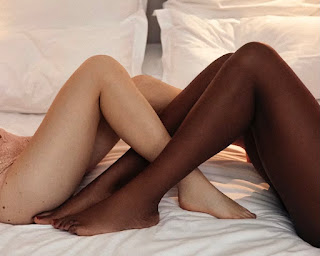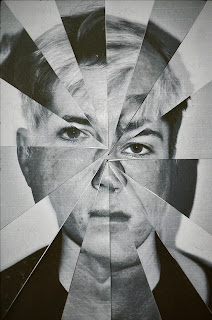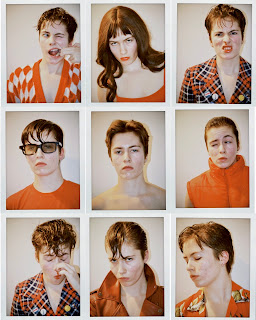Hello everyone! Spring has sprung and, unfortunately for me here in the UK, the weather is continuing to flip flop between tropical sun and tropical storm.
In the midst of this unpredictable weather, and as a first for Sexplorations, it’ll not just be my voice you’re reading.
Because this month I had a cuppa and a chat with artist and student Isaac Malcom, covering everything from his art, how his identity impacts his work, - and even Scooby Doo crushes.
Issac Malcom is a conceptual artist from the North East of England. He is drawn to the fears, fantasies, and secrets of ordinary people and how spectators of his work identity with any of its aspects.
His work seeks to unmask both the physical and psychological register of identity through the lens of subjective realities and creating a context for people, specifically queer and trans people, to speak, be seen, and to take up space.
He uses the mediums of photography and video within his projects to discover how individuals can integrate themselves into a ‘social fabric’ through self expression. He intertwines these mediums with themes of sexuality, masculinity, and exploring the intersection between brutality and sensibility.
Sat in a coffee shop with half a cheesecake and a pot of tea between us, I mention how much his voice has changed in the two months since I last saw him. He smiles and thanks me.
Celebrating 5 month since starting testosterone, Isaac shares about this monumental moment in his transition:
“It’s very euphoric. I feel like I’m really coming into myself. Obviously there are days when I do get really dysphoric and I think, ‘Oh my God, I can’t do this,’ especially in places like work. But, in turn, it makes me so much more confident.”
Having known Isaac for several years and seeing his personal growth in this time, he seems more “him” than ever. Even walking in to this interview, there is a bound in his strides and he confidently takes up space.
We turn the conversation towards anxieties surrounding life changes and how fear often comes along with happiness. When asked about if he feels any worry, Issac responded, “Yes definitely. I’ve actually just written a journal entry about it. It’s one of a couple of things going on right now… for example my visa for visiting Australia and also how I’ve just gotten into the Glasgow School of Art.”
Isaac is already smiling before finishing his sentence. He talks about how excited he is to move to Scotland and experience Glasgow’s notorious art and queer scene.
Asking how he feels about this “newness” in his life, he responds “Hopeful.”
Getting nostalgic, he shares; “5 years ago, I was 14, pre-lockdown. That was a very hard time for me. If anything, lockdown was good for me because it gave me time to reflect on things. And school was out of the picture, … it was good to have that time to focus on myself.”
Like it was for many other queer youths, lockdown was a time of self discovery and exploration in a time where we were forced to be isolated and introspective. I related to Isaac’s lockdown experience heavily and it made me wonder how other LGBT people felt during such a tumultuous time.
Turning back to Isaac’s artistic work, we discussed how the relationship between his art and his sense of self is very non-linear and l abstract.
Issac uses the metaphor of a tree to describe this:
“There is a lot of stuff that goes into making my art but again it does always go back to the trans thing. It’s right in the middle of it like a tree and everything branches off from this in different directions like twigs and leaves… it just keeps going.”
We discussed some of Isaac’s pieces and I mentioned one of my favourite, FRAGMENTS.
Inspired by Nadia Lee Cohen, Cindy Sherman, and even celebrity alter egos such as Lady Gaga’s Joe Calderone and David Bowie’s Ziggy Stardust, Isaac is photographed as multiple distinctive personalities, each being their characterised selves [pictured below].
Following from this, I ask Isaac about his upcoming works and what he would do with his art if money wasn’t an object.
“Oh, I’d like to make a film. A full feature film. A mockumentary. I think that’s more aspirational though because I feel like that’s something for the future. I don’t think I’m ready for that just yet.”
To round off our interview, I presented a typical Sexplorations question: first celebrity crush?
Isaac brings up James Gunn's Scooby-Doo and the absolute icon that is Daphne Blake played by Sarah Michelle Geller. He was immediately entranced by her purple outfit and badass kickfighting moves and, honestly, I have to agree with him. She was, and still is, a true awakening for arguably every 2000s child.
Thank you for reading this issue of Sexplorations!
And a huge thank you to Isaac Malcom - you can find him on Instagram via @isaacromanart and @isaacmalcolmm.
Written by AJ Craig
Edited by Emily Duff





